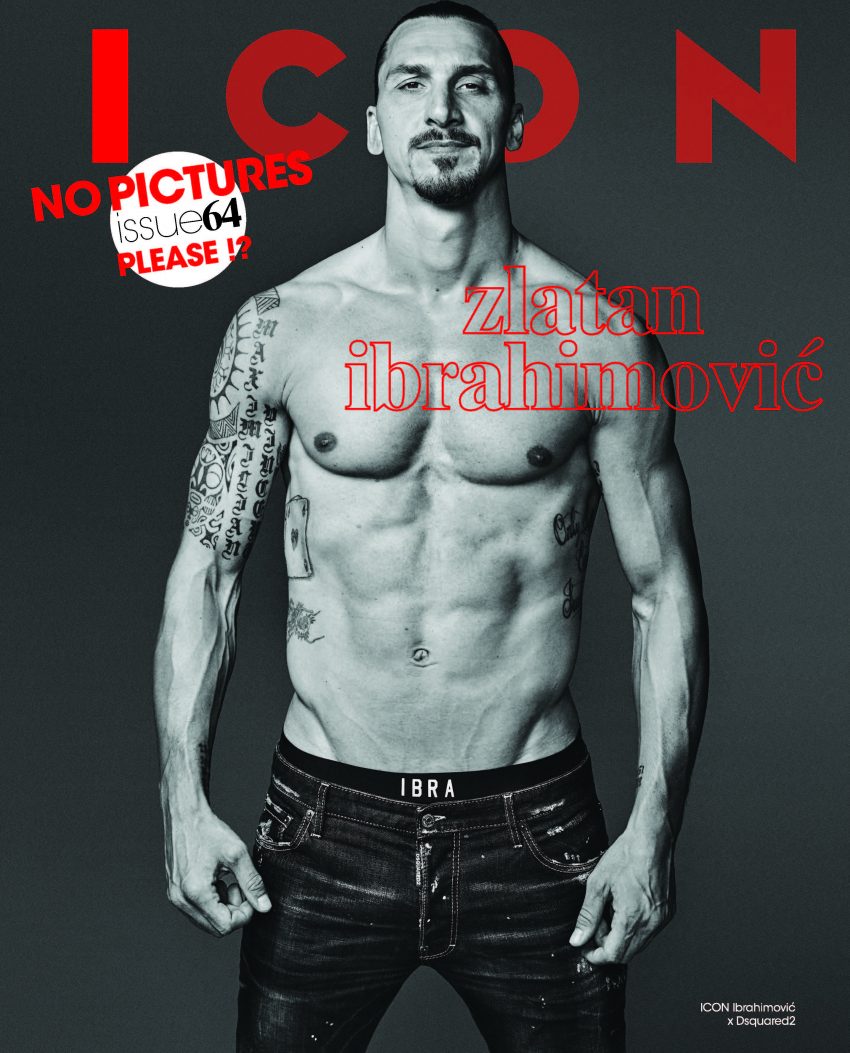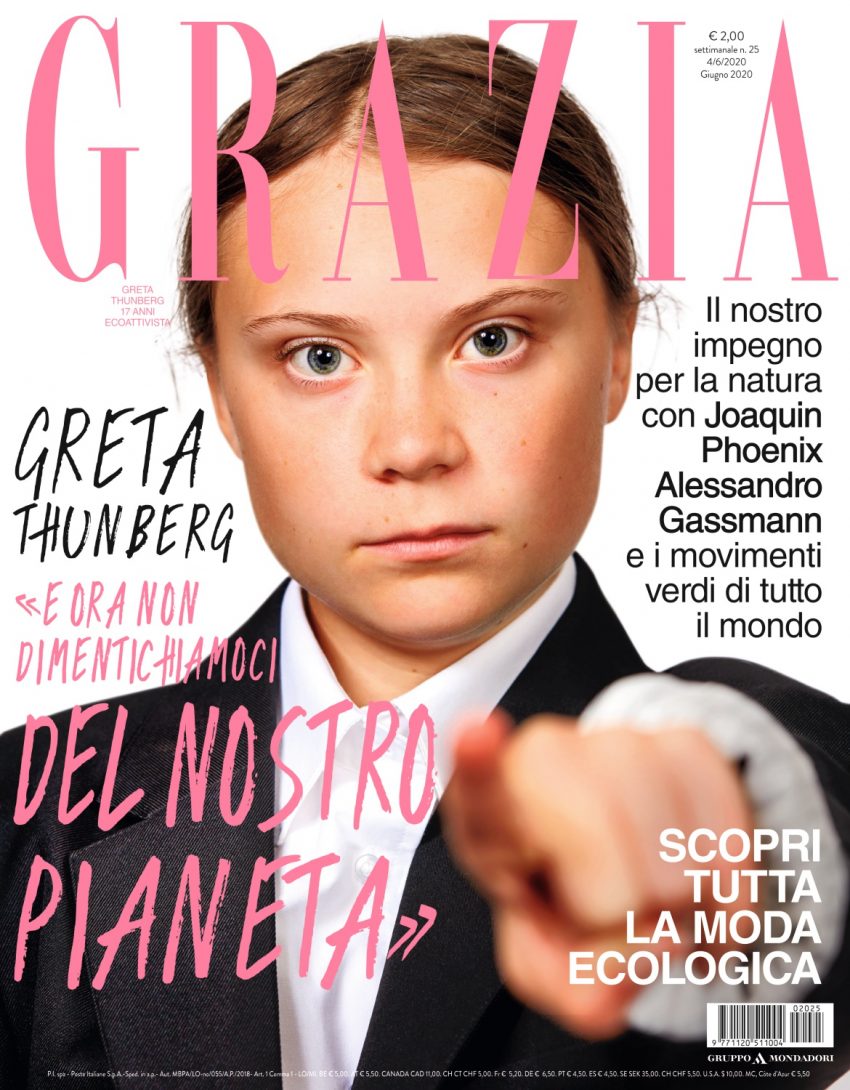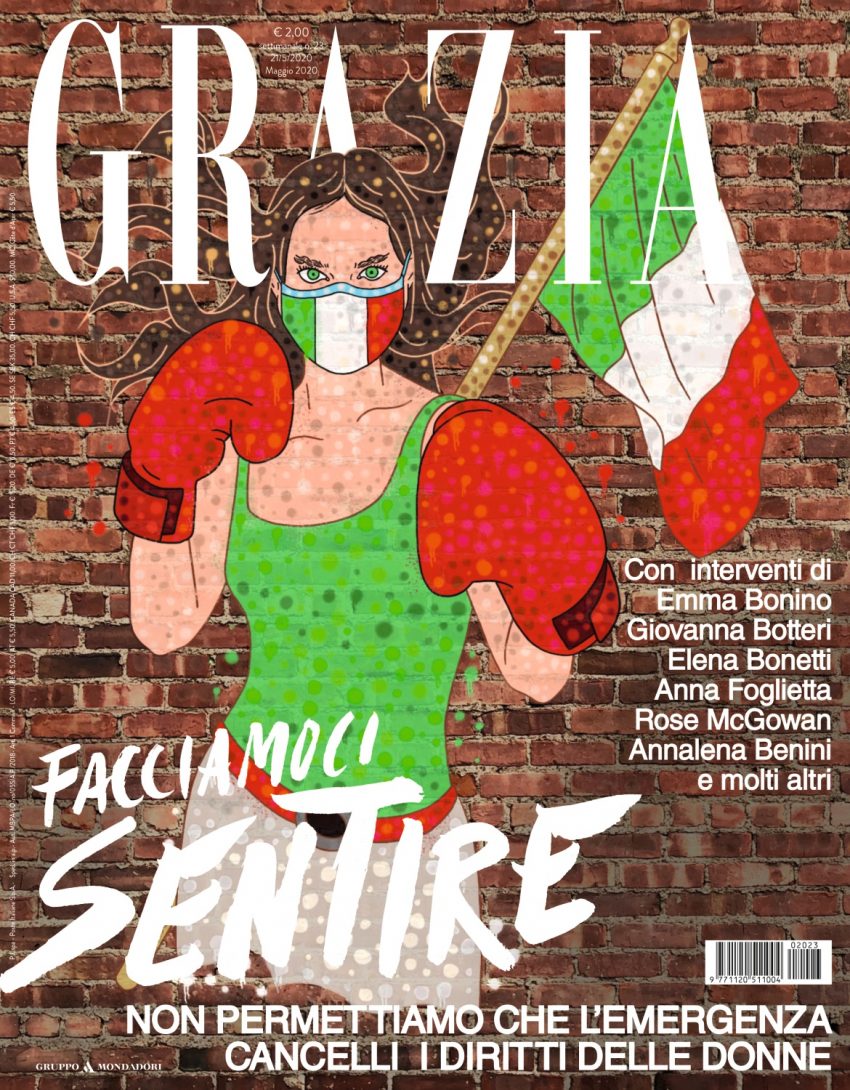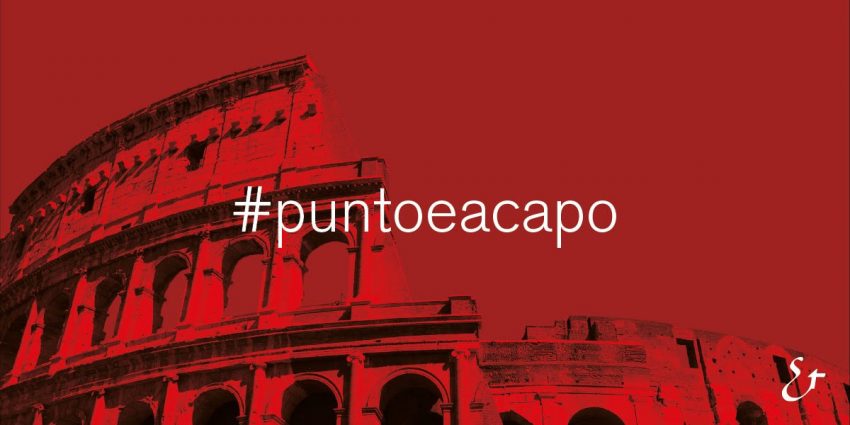Grazia, the magazine edited by Silvia Grilli, has developed a series of initiatives to support all those women who before, after and during the lockdown have taken on professional and family commitments and now risk being left out of the labour market. And it is to these topics that Grazia has dedicated an extraordinary issue #Facciamocisentire – on newsstands from tomorrow Thursday 21 May – and a campaign launched on social media to ensure that he current health and economic emergency does not undermine women’s rights.
“Let’s be honest: women are not angels. Though this is how we have been figuratively represented and depicted during the lockdown. Angels of the hearth, while we hold the family together, angels in hospitals where we make up 80% of health workers; angels of the supermarket, where we continue to comprise the majority of workers. And whiles these so-called ‘angels’ continued to work outside or at a distance, sacrificing themselves with children, husbands, aging parents, government-appointed task forces – made up only of men – forgot about us. Because you can’t re-open Italy while keeping the schools closed. You can’t hold back female employment giving to women the role of assistance for the country. We mustn’t let the crisis become an excuse for depriving us of the rights that have been won with such difficulty. Let’s fight to honour our ambitions and liberate our dreams. We mustn’t continue to ask women to give up a part of themselves. From a great crisis it is possible to ensure that a greater awareness is born along with a country where there is more equality between men and women,” declared Silvia Grilli in her editorial.
In the special issue #Facciamocisentire (Let’s Make Ourselves Heard) Grazia has brought together first-hand stories and suggestions from readers on how to create a more equal school system; how to encourage girls and young women who too often withdraw from the competition for fear of making mistakes, how to bring up a female generation that sees power as something positive. And it also tries to understand how to involve Italian men in all this. Because women will win this battle only by convincing everyone that the sharing of duties and power between the sexes will be of benefit to men, women and the good of the country.
This is also what Senator Emma Bonino thinks, and she tells Grazia about how many women during the lockdown had to live with aggressive partners, but only a few asked for help and some lost their lives. The emergency, the Senator tells the magazine, risks silencing rights that were acquired only after years of battles. To avoid this, we need a cultural revolution that also involves and includes men.
International studies confirm that the gender gap in our country is widening. The Minster for Equal Opportunities, Elena Bonetti, explains how we can build a better society starting from the family, school textbooks and the labour market.
Grazia also publishes an account by journalist and writer Annalena Benini, who writes about the way in which the lockdown has unmasked a misapprehension: women, brought up to be generous, doubled down with home and children. Men, whenever they tried, seemed like heroes. But the disparity between such efforts, the journalist explains, should open our eyes. Because women should now have the courage to present the bill.
In the pages of the special issue #Facciamocisentire there is also the voice of Rose McGowan, one of the first to accuse American film producer Harvey Weinstein of sexual abuse. She had to sell everything, including her home, to pay for her lawyers. But the courage of this actress led to a movement that has revolutionised the world. Now she has produced an album of music to help people overcome their fears, including those concerning the pandemic. “Since I put myself out there,” she explained to Grazia, “I have learned that it is during crises that we can reconfigure our existence.”
Another woman who has been much talked about as a result of being the subject of sexist insults is Giovanna Botteri, the RAI correspondent in Beijing. She tells Grazia about her experience among the courageous women of Sarajevo, among small children under bombardment in Baghdad, in the America of Obama and Trump, and in China in the time of coronavirus. And why, as she writes, she prefers to ignore the looks of disapproval and go straight to where life is flowing more energetically.
During the pandemic actress Anna Foglietta rolled up her sleeves, oversaw her three children as the played and did their homework and saved her husband who was working from home for any inconvenience and disturbance. She did it because it came naturally, then she realised how much it was taken for granted that this is what she should do. And in her diary for Grazia she explains how it is only when tasks in the home are shred that a woman can claim to be free to be herself.
Behind the name Claire Fontaine is a couple that loves to be provocative and make us reflect on equality between the sexes. Like when, in Paris, they installed feminist slogans during an important fashion show. Grazia asked them to imagine how artists could change the relationship between men and women. While also the designers featured in the Architecture Biennale 2020 try to imagine the future of homes with and after Covid-19.
The economist Veronica De Romanis explains to Grazia why our country, in order to restart, has desperate need of quotas to put the right women in command. During the emergency women worked from home, took care of families and suffered the closure of the schools. But were excluded from the decision-making process.
The magazine also spoke to some leading female scientific researchers: “Often we just wait for others to recognise our qualities. But now we want to make ourselves heard,” they say after the inclusion of six female scientists on the government’s emergency coronavirus task force.
In Italy fathers are changing and are more involved than before. But male power remains dominant. Why is that? Psychiatrist Paolo Crepet tells Grazia about a country in which the army is made up of women, but the generals are all men. And explains that if we really had a meritocracy, we would need much more than ‘pink’ quotas.
The special will also go ‘viral’, trought a Digital PR campaign with the hashtag #FacciamociSentire.










